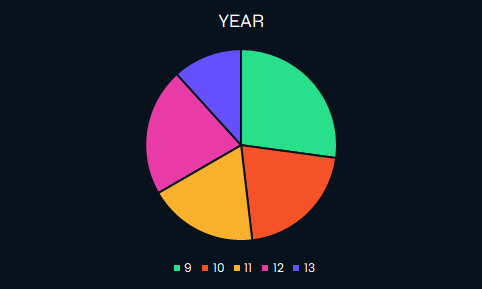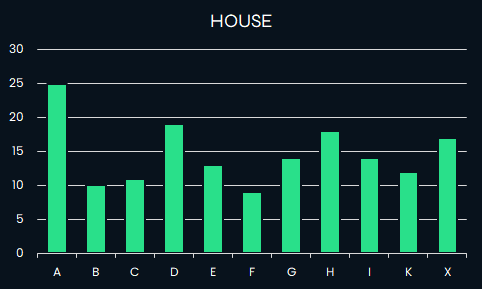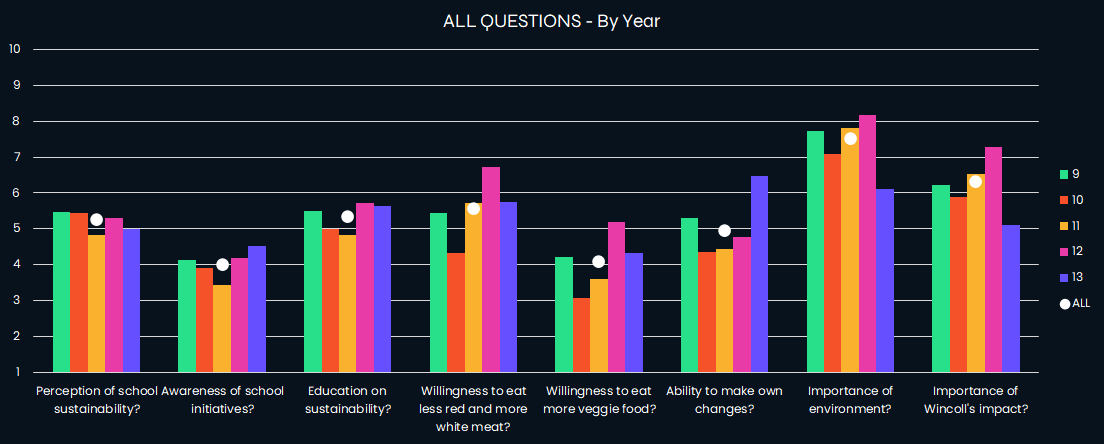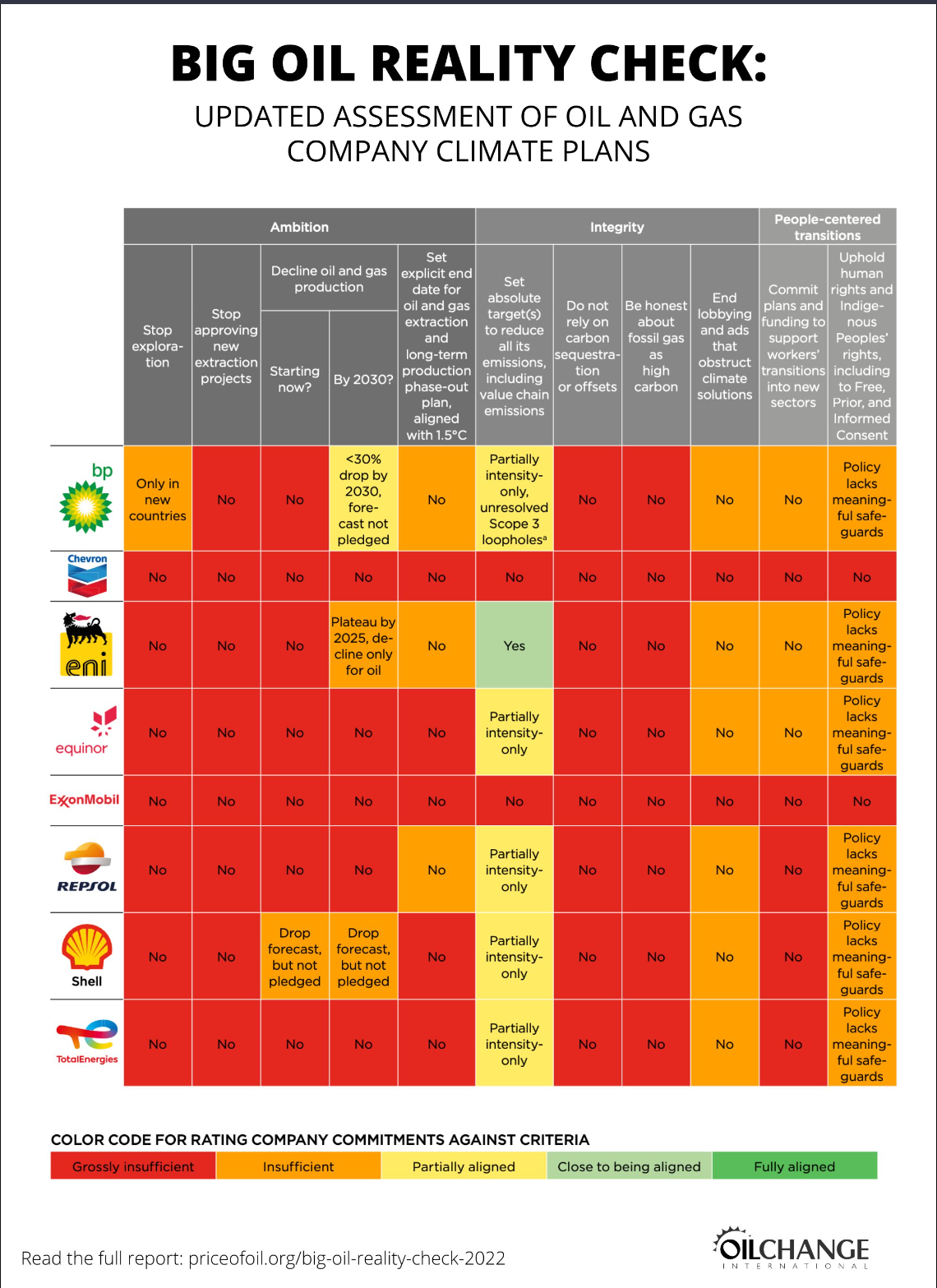Gosh dang it stuff keeps on happening but there’s an edition and it contains a bunch of things. Enjoy?
Stories in this newsletter:
- World Environment Day
- Big Oil Reality Check
- And some other ongoing goings on in the Lightning Round
World Environment Day
June 5 was the UNEP’s World Environment Day and in school we acknowledged this with a MobLib display and a tutor hour. World Environment Day this year also celebrated 50 years since the first Climate Conference in Stockholm and marked the Stockholm+50 conference that was held there. I dropped into some sections and some of the speakers were really powerful so I hope something good comes of it.
The Survey
Felix also put together a great MS form which when we finalised the slides for the tutor hour had 172 submissions, since then it has grown to 198 submissions. Here’s some of the data we showed in the tutor hour:


Graphs to show the numbers of submissions by school year, then by house.
In terms of the numbers of responses, the plurality came from JP, followed by VI2. Furley’s had the most submissions by 6 responses.

A graph showing the responses to each question on the form by year (clustered columns) and the average of all responses (white spot).
From this data we can see that:
- In general, people thought that sustainability was important (7.5), but didn’t feel Wincoll’s impact was so important to them (6.3).
- This perhaps has something to do with people’s perception of the school’s sustainability which they gave a 5.3 and the lack of awareness of school efforts (4.0). This is certainly a place where sustainability society aims to improve considerably next term.
- JP (5.3) and VI1 (6.5) feel the most able to make their own changes. In VI1 this is probably because they’ll soon be moving on from the school which gives them a little more control over their life but I am unsure as to why JP feels the same given their overall education is similar to the average and (5.5 and 5.3 respectively) and they assign the environment roughly average importance (7.7 and 7.2).
- People are generally willing (5.6) to eat less red meat and more white meat but much less willing to eat more vegetarian food (4.1). I think this reflects generally poor quality vegetarian food being served in some houses and the poor reception of vegetarian days. It is not trivial to go from a omnivorous diet to a vegetarian but it is clear (as I have outlined in a previous edition) that it should be simple for Wincoll to cut down on food emissions through reduced meat consumption significantly since the majority of the UK eats less meat.
There’s an even more impenetrable graph we produced which shows the answers to each question by house, but instead of showing that, I’ll just share some of the key takeaways here:
- There is a lot of variation by house on questions to do with food, I expect this to stabilise next year when menus and ingredients are more centralised. The least unwilling house to eat less red meat and more white meat gave 3.0, and the two least willing house to eat more vegetarian meals gave 2.5 and 2.6.
- However, Kenny’s (6.6) and Phil’s (6.6) are willing to eat less red meat and more white meat. Interestingly, different houses are the most willing to eat more vegetarian food with Freddie’s (5.1) and College (5.3) being the most willing.
- Trant’s feels by far the least able to make their own changes (3.3).
- College feels by far the most educated about the environment (6.6 vs an average of 5.3) despite ranking the environment and Wincoll’s impact less important than any other house.
- Phil’s (5.0) and Hopper’s (4.9) feel the most aware of school initiatives.
If you think that some of this data is particularly unflattering, you wouldn’t be wrong, but I do think it’s important to share anyway. I think the data reflects something we’ve known for a while but haven’t really been able to put numbers on: people generally like the idea of change, but are often unwilling to make their own changes. Don’t get me wrong - there’s some promising data here and I’m certainly glad we ran the survey. It just leaves the question: how do we get more people to a stage where they are willing - are excited even - to participate in or make changes that affect them?
I have an edition in the works about nutrition in the works so if that interests you, keep an eye out!
The written answers
At the end of the survey there was an optional question for written responses. Big shout-out to the people that simply said “Ja” and “/”.
Question: “What do you think the school could do to address sustainability?”
This was my answer:
- Report emissions.
- Set targets, at minimum in line with net-zero by 2030 including Scope 3.
- Per house incentives (e.g. competitions with perhaps a cash prize per house) to reduce emissions.
- More time for education about Climate Change and recent news for all years, perhaps through div or tutor hours. Where syllabuses don’t exist, this could be achieved by better informing dons about Climate Change.
- Make very visible changes for motivation.
- Clear and consistent communication from the school (to pupils/parents) about ongoing initiatives.
And some others (all the submissions were anonymous):
Get rid of the economics department
nothing. let’s be part of the problem
give me better food
Now, to be fair, the majority of the submissions were more thoughtful. They tended to focus on:
- Less red meat.
- Better vegetarian options.
- Heating/insulation improvements.
- Electrification of transport.
- More PVs (solar panels).
- More pupil involvement.
- Recycling and switching off lights.
- Improve communication and the message the school sends.
In no particular order:
Educate - compulsory climate talks Provide more opportunities - programmes to get involved in, donation pages, charity soc, ekker choices as well as CS
I do not think that the school should change the proportions in the amount of red or white meat we eat, seeing as we eat a lot of both. I also dislike a lot of white meat. I feel that if the school were truly going to make an impact on the environment, they would halve the amount of meat we eat, seeing as we eat a lot of it, and beef burgers are less enjoyable for many then a lentil or halloumi burger.
I literally do not care about this, because it’s all virtue signalling and makes next to no difference to the schools environmental impact, since things like the PE Centre have a gas boiler.
I believe that pupil protesting and lobbying of management is necessary to cause real change. Enabling this is completely necessary as we all know orthodox and law abiding pupil consultations mean nothing. By all means necessary we must make change. As the man himself Fred Hampton said, ‘you can kill a revolutionary, but you can’t kill a revolution.’
Encourage recycling more than they do, especially in boarding houses where (as far as I am aware) there is no recycling options at all.
(In many houses recycling is an option - but it is rather shocking that it is not in this pupil’s house.)
School Status
In case you weren’t at the tutor hour here’s the information we gave about the school’s current initiatives and future plans:
A few areas where the school is currently active:
- An advisory body to GoBo exists (ESAG) and meets termly.
- 60% of the investment portfolio has been moved into ESG screened or impact focused funds.
- ~50 Ha of ecologically sensitive land is maintained by the College within Winchester (Fallodon Reserve) with a further ~50 Ha leased to the Wildlife Trust and made publicly accessible (St. Catherine’s Hill).
- Flint Court is heated by a biomass boiler.
- Emissions from energy have dropped ~15% (2430 to 2069 tonnes CO2eq) from 2019 to 2021 due to installation of better monitoring equipment and better management of areas not being used by pupils.
- Food waste is sent to an anaerobic digester.
- Student projects (Resilience, The Elizabeth Project) have been encouraged and actively supported.
- Areas of the campus grounds away from pitches have deliberately been dedicated to biodiversity enhancing management approaches.
A few areas where the school plans to be active:
- The new girls’ boarding house will have low embodied carbon, be highly insulated and heated with heat pumps (PassivHaus standard)
- A 50 MW solar farm on school land is currently in planning. If successful it will provide the equivalent of 6% of Winchester District’s current electricity demand
- The school are consulting with carbon audit firms with the aim of producing the first official baseline of our emissions
- EV charging points will be available in the new PEC car park.
- Parents will soon be able to purchase offsets via the school for emissions relating to pupil commuting to campus
If you have any thoughts about places where you’d like to see the school doing more, either because you think it would build ambition or because it would be particularly effective in cutting emissions, Felix and I would love to hear them!
Big Oil Reality Check
On May 24 Oil Change International released their updated Big Oil Reality Check. This truly damning report walks through the current status of the oil industry and their pledges and evaluates them relative to Paris-aligned (or more recently IEA 1.5 aligned) goals.
I’m going to summarise and talk about some of the findings from this report, but the 4 page (lots of pictures!) executive summary is very good and I strongly encourage you to read it.
Companies that have fossil fuels emissions as a part of their business and have done the most to cause the Climate Crisis cannot be trusted to solve it alone, despite their marketing. This year, oil demand has returned to pre-pandemic levels of 99.5 million barrels of oil equivalent per day (mboe/d) and at the same time oil prices have spiked in response to the Russian invasion of Ukraine, delivering record profits for companies. 40% of public money for the energy sector (as part of COVID relief efforts) went straight to fossil fuels and banks have funnelled USD 742 billion into fossil fuels in 2021 alone.
In a March 2022 report the International Energy Agency (IEA) said that to limit warming to 1.5C we need “immediate and deep cuts in the production of all fossil fuels.” Here’s the thing, the IEA is an organisation that has been often relied on by oil companies to advise their plans for the future. Now, even the IEA has produced a 1.5-aligned report. This report, World Energy Outlook 2021, still includes a 4,000% increase in Carbon Capture and Storage (CCS), a huge increase that we would ideally not be relying on at all for the energy sector.
Even if coal use stopped overnight, already developed oil and gas fields would still take us above 1.5C of warming, and this if nothing else should make it clear that gas is not a bridge fuel. “Gas is not essential for grid reliability:” battery storage is competitive and costs are falling rapidly. Fossil gas is also linked to health negative impacts. These reasons mean that, despite possible temptation, gas is simply not good enough to be a “bridge” fuel. In a way, we are fortunate that 52% of oil production is taking place in wealthy countries which depend less on oil and gas - there is space to transition rapidly here.
Here’s the key figure from the report which shows major oil companies current pledges and actions:

All but two of the companies surveyed plans to increase production by 2030 and this is happening while every fraction of a degree of warming makes climate extremes worse worldwide and the IPCC’s report showed that emission need to peak in 2025.
If I were an oil company right now, I would focus on slowly turning down production rather than creating new projects and getting money back to shareholders. If I were a shareholder, I would also be pushing for a plan like this, that is both aware of a just energy transition and accepts a realistic change in our energy grid in the next decades.
Read
Oil Change International: Big Oil Reality Check
On 1.5
I was scared to say it before, in fact, I toned down the language in my IPCC WG3 edition because I was scared of admitting it to myself. I guess… there’s not much chance we’ll keep below 1.5 degrees of warming. The world will blow through 1.7C with coal, oil and gas fields we’ve already developed. Independently, we’ll use our entire carbon budget for 1.5C on just food, and most of the budget for 2.0C. News like this can be especially depressing; just look at the scale of the problem we have utterly failed to combat up till this point.
Dear reader, I can only encourage you to look to the end of the train of thought I am laying out here and see the hopelessness that lies there, but what is the point in actually going there? Optimism is not some fantastical state of mind where everything works out perfectly; it is just to see the hopelessness of individual action and to reject it. Why sit down and just wait, when we can fight? Fight for every fraction of a degree. Fight for every drop of oil, every person killed by air pollution, every tree cut down, every acre of land turned to dust, every person living on an island, every land animal, every algae and fish in the sea, every future inhabitant of this Earth and fight for ourselves. It doesn’t make sense? It won’t work? I don’t give a damn. Let me play the fool who tries to help and not the smart one who runs until there is nowhere left to run.
And… if there’s anyone who’s made it this far, if you don’t mind, I’d like to ask you to join me, in stubborn optimism. I am asking you, I suppose, to join me in having the common decency, the sense of duty to the Earth and life around us to try and stop this mess.
Carlos Maza: How To Be Hopeless
Our World in Data: food production alone could use up all our Carbon Budget
Lightning Round
Extinction Rebellion (XR) Activists lead Widening Perspectives Talk
2 XR activists came to Wincoll to give a talk discussing what they do. The speakers’ message was powerful and I thought it was very interesting how they genuinely did not claim to have the solutions, they simply recognised the scale of the problems and demanded action on it ASAP. They set out their method of finding solutions: a legally binding Citizen’s Assembly. Regardless of your opinions about XR it was an informative talk and the discussion afterwards was great.
Caroline Dennett resigns from Shell: The Guardian article
Short read
Caroline Dennett resigned rather publicly from Shell after 11 years, sending a powerful email and video to other employees at Shell to, if it is financially possible, “walk away while there’s still time”. Some people are hoping this has a ripple effect among other employees.
“Man is the most insane species. He worships an invisble God and destroys a visible nature. Unaware that this nature he’s destroying is the god he’s worshipping.” - Hubert Reeves
See you next edition,
Oscar Mitcham